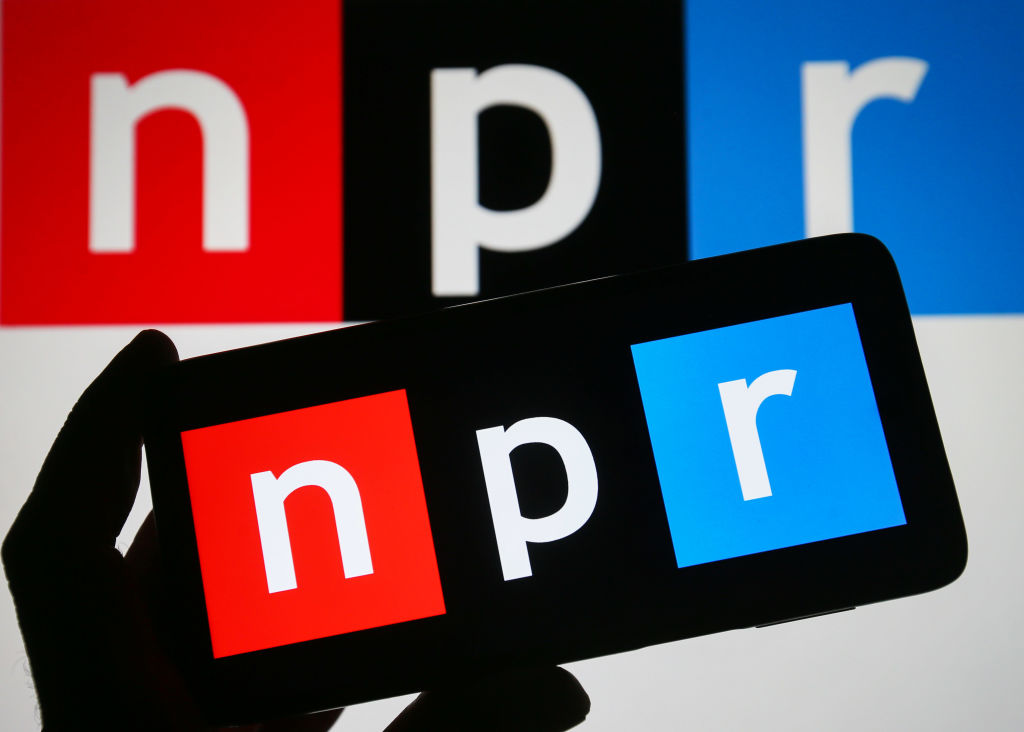Giving in to the pro-abortion Left out of fear would be the real defeat.
An Appeal to the Press

Honest, objective journalism would help restore our fracturing nation.
There’s enormous appetite for objective news today. But the establishment media’s lack of political diversity muzzles true journalism and foments division. Simply put, an unrepresentative press is not a free press.
The surprise dropping of cable TV’s number-one rated anchor, Tucker Carlson, sparked questions about media ownership’s conflict with majority will. Tackling news suppression takes center stage as Congress investigates cable providers for dropping highly-popular news channels allegedly on political grounds. This follows on the heels of Elon Musk’s “Twitter Files,” a series of reports that gave the world a front-row seat to the inner workings of partisan censorship.
Short of a cadre of eccentric libertarian billionaires buying up legacy platforms, restoring media integrity and public trust won’t happen overnight. Beyond policy reforms journalists must renew their commitment to their trade’s original mission.
Nearly all mainstream media outlets have an overtly agenda-driven narrative. Unbiased, fact-based journalism is becoming endangered as media conglomerates place politics above truth, and sometimes even profit. Selective, one-sided coverage has long manipulated public discourse, and now weaponized AI bots and paid trolls raiding comment sections compound the problem. Many are unaware of the extent to which coordinated influence operations go in their attempt to dominate discussion and steer sentiment. Objectivity itself is now openly under attack in establishment newsrooms. This unmoored, hyper-politicized approach, fit more for salacious takedowns and shakedowns than news, hinders journalism’s mission to accurately investigate and report. Like animated opposing counsels in court, media partisan mouthpieces aggressively press their arguments, ignoring relevant facts to the contrary. It’s news to drive narrative, not inform healthy debate.
Locally-focused and independent outlets also struggle to compete with corporate behemoths. Many freely-distributed city papers, conveniently placed in coffee shops and public venues, are mere subsidiaries promoting their national parent holding company’s agenda. Highly controversial and rootless partisan views get frontpage treatment and are pumped into small town America where traditional main street values are cherished. It’s difficult for natural local civic engagement to get off the ground with this kind of interference. Ideological media bosses spotlight their pet causes while undermining organic, grassroots movements, lest a silent majority be stirred to action. This creates an environment where unpopular local ordinances (not to mention anti-religious maneuvers) often sneak through without scrutiny. Key local elections and stories with major community impact including school curriculums, libraries, and cultural activities rarely get proper coverage. Keep the majority calm and in the dark. Heaven forbid parents shape their community and authentic townhalls occur! True hometown coverage is almost extinct.
But complacency has limits, and trapping steam in a pot sets up for future disaster.
Studies show that journalists at major media outlets give over 90 percent of campaign donations to Democrats. Those perpetually on the hunt for systemic bias in American institutions need look no further. Yet statistics like this curiously get overlooked. Who’d be naïve enough to believe that such a disproportionate political imbalance wouldn’t affect news coverage? Can anyone forget the coverage culminating in field reporters in 2020 nervously rushing to declare protests as “mostly peaceful” as buildings literally burned to the ground behind them? It’s little wonder that polls show most Americans no longer trust mass media.
This systemic viewpoint imbalance nurtures a groupthink that gives America’s media establishment a decidedly leftward bent.
The result is a locked out Right left to compete over fractured airwaves on the periphery. And marginalized journalists who doggedly pursue objectivity or may privately harbor right-leaning sympathies have had no choice but to get in on the partisan game, if only to ensure their work still gets out to the public. This highly-polarized state of affairs leaves an overwhelmingly Left-leaning legacy media without diverse representative voices, whose presence would at least encourage balanced reporting.
Should the Right simply resign itself perpetually to starting up alternative outlets and give up on influencing core institutions?
Ceding the public square to the Left would only hasten America’s divide, especially since many non-negotiable truths are now on the line. It’s still worth appealing directly to industry titans, stakeholders, editorial boards, and reporters themselves to reflect on their trade’s lopsided condition in the hopes they’ll aim to reclaim journalism’s honored independent heritage.
As talk of “national divorce” has already reached the halls of Congress, keeping the status quo will only further the separation of the country. Today’s exploding cancel culture will create a parallel society and solidify into essentially two Americas, each boycotting the other.
Conventional media, however, can serve an important role as a relief valve. Those writing off conflict resolution should bear in mind that different approaches to a solution need not be mutually exclusive. Creating competition and new alternatives today can complement longer-term efforts to influence institutions tomorrow. Although frustration with a stacked press has reached terminal point, an entente with the goal of defusing this situation is apropos. It starts with the owners of legacy media institutions conceding they have a closing window of opportunity to course correct. Admit half the country’s grievances about bias have merit and offer representatives of flyover country prominent seats at the table.
Diplomacy is universal. After all, course corrections have been done on a grander scale. Smart, equitable nations gauging the times once pursued partnerships over colonization. Parliaments formed coalitions with groups previously kept out. So too can today’s media empires play the responsible part and help heal the divide by welcoming back exiled views shared by half the country. CNN’s recent leadership change and its far-famed Trump townhall indicate that many in high places desire to strike a more neutral tone. After all, there’s lucrative marketplace for mainstream media reviving a brand synonymous with rigorous, objective reporting. A serious commitment to intellectual diversity outside the urban bubble would be a start.
Making appeals to journalists by noting one’s respect for journalism’s ideals certainly can’t hurt either. And it’s possible that journalists themselves will reform their institutions from within. After all from time to time, leaders from among their own ranks have sounded the alarm. A prime example being Douglass Cater, a journalist and editor of the D.C.-based magazine The Reporter, warned against bias and government intrusion in his seminal 1959 book The Fourth Branch of Government. Eight years later a young Rupert Murdoch cautiously spoke about the need for “there to be plenty of newspapers with plenty of different people controlling them” to avoid “being a great power for evil.”
Since the mainstream media’s widespread reach and ability to shape public opinion is unduly influential, there is a public trust requirement—a trust that can only be regained by journalists working to bring back integrity to the trade. The eight principles etched into the century-old Journalist’s Creed hanging in the National Press Club in Washington, D.C. faithfully outline journalism’s high ideals. The Creed rebukes the very suppression so widespread today and presciently warns against betraying the public trust. Its second point expressly reads, “I believe that the public journal is a public trust; that all connected with it are, to the full measure of their responsibility, trustees for the public; that acceptance of a lesser service than the public service is betrayal of this trust.”
Legacy media’s unrepresentative and systemic bias subverts real journalism. A controlled press keeping the public in the dark and competition out isn’t free but instead resembles a cartel.
Rather than further fan the flames that promotes party divides, establishment networks should work to restore robust non-partisan news. The adults in the room must also insist on making editorial space for the country’s heartland views. Having virtually monopolized the public square, media moguls have an ethical responsibility to place public trust over ideology.
America is at a crossroads. Will media empires follow Twitter’s about-face and avoid getting crushed by a mass viewer exodus and antitrust measures? People desire this; the nation needs it. The global market’s wide open for honest, world-class, neutral news. By courageously adhering to principles of integrity and objectivity, combined with policies preserving competition and free speech, the established press earn the public’s trust. Only then will media be poised to authentically inform, serve, and safeguard free society.
The American Mind presents a range of perspectives. Views are writers’ own and do not necessarily represent those of The Claremont Institute.
The American Mind is a publication of the Claremont Institute, a non-profit 501(c)(3) organization, dedicated to restoring the principles of the American Founding to their rightful, preeminent authority in our national life. Interested in supporting our work? Gifts to the Claremont Institute are tax-deductible.
The Jewish Left backed the creation of a society that loathes them.
It’s not about hypocrisy—it’s about the Left’s warped view of justice.
Online pornography and masturbation are causing immense damage.
Caricatures and lies abound in the attempt to subvert the West.
“Decolonization” is a cynical scam.






